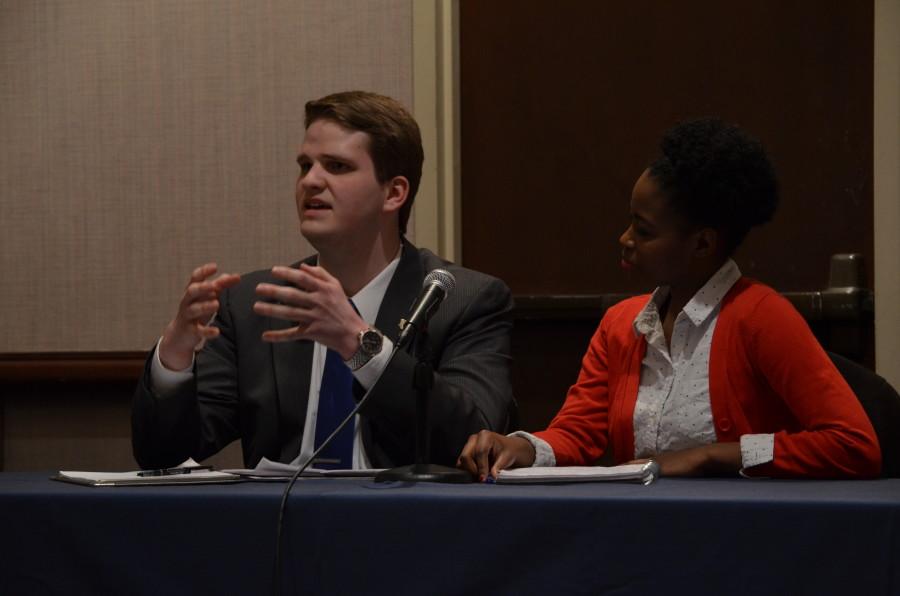
What’s an indicator of a healthy and improving U.S. economy? Higher divorce rates, according to Abdur Chowdhury, a professor of economics in the College of Business Administration.
Chowdhury’s study, “Til Recession Do Us Part: Booms, Busts, and Divorce in the United States,” will be published in the journal Applied Economics Letters early next year.
According to the study, money – not hard feelings – is the main factor driving American couples’ decisions on whether to divorce during economic hardship. The study shows that American couples are less likely to divorce during a recession because of divorce’s expensive nature and financial disadvantages.
The study, which looked at divorce rates in 45 states between 1978 and 2009, focused on the Great Recession of 2007 to 2009 and found that high unemployment and economic uncertainty will prevent a couple from divorcing “irrespective of the quality of the marriage.” Consistent divorce data for California, Georgia, Hawaii, Maine and Minnesota was not available.
“Recession tends to strengthen marriage,” Chowdhury said in an email. “Economic downturn forced many couples to redouble efforts to save their marriages.”
In his study, Chowdhury suggests that a possible reason for refraining from divorce during a recession is the “new appreciation for the economic and social support that marriage can provide during tough times.”
During the height of the Great Recession in 2008, divorce rates in the U.S. fell to 16.9 per 1,000 married women. In 2007, the divorce rate was 17.5 per 1,000 married women after rising significantly from 16.4 divorces per 1,000 married women in 2005.
According to a study done by the National Marriage Project at the University of Virginia, 29 percent of Americans aged 18 to 45 believe the recession has deepened their commitment to marriage. The study also found that among those couples considering divorce before the recession, 38 percent decided to put those plans on hold.
However, the study also shows that a couple’s decision to refrain from divorce during economic hardship is not always a permanent one. In 2009, as the economy began to slowly recover, the “pent-up demand” for divorce during the recession was released and rates began to increase again.
“Divorce is pro-cyclical,” Chowdhury said. “(That) means that divorce and the economic cycle move in the same direction – when the economy is doing badly, divorce rate drops, and when the economy improves, divorce rate increases.”
Couples were found to be more likely to benefit fiscally if they waited for the economy to improve before seeking a divorce. Due to a decline in the housing market during the recession, property values decreased and marital assets were subsequently worth less than in previous years. Normally, divorcing couples use the return from these assets to go their separate ways, but a substantial drop in home prices meant there was not always enough money to support two separate households after the sale of one home.
Chowdhury said he expects divorce rates to rise slightly next year due to the slowly growing economy.
Claire Beyer, a junior in the College of Communication, said it makes sense that legal expenses would deter couples from proceeding with a divorce in a recession. She said she is surprised, however, that a more mobile, improving economy would result in an increase in the divorce rate.
“I think the study makes sense that divorce rates would be lower when the economy is in recession,” Beyer said. “But, I think it’s interesting – wouldn’t people with less financial hardships and stress be happier and less likely to get divorced?”



